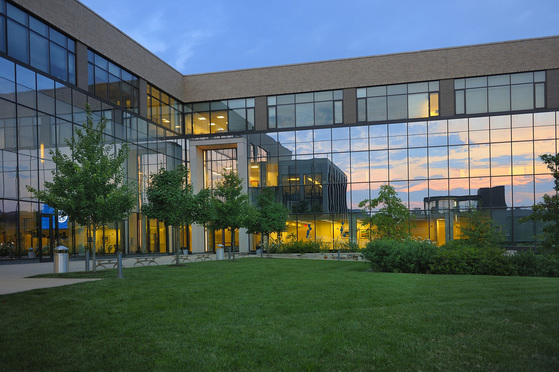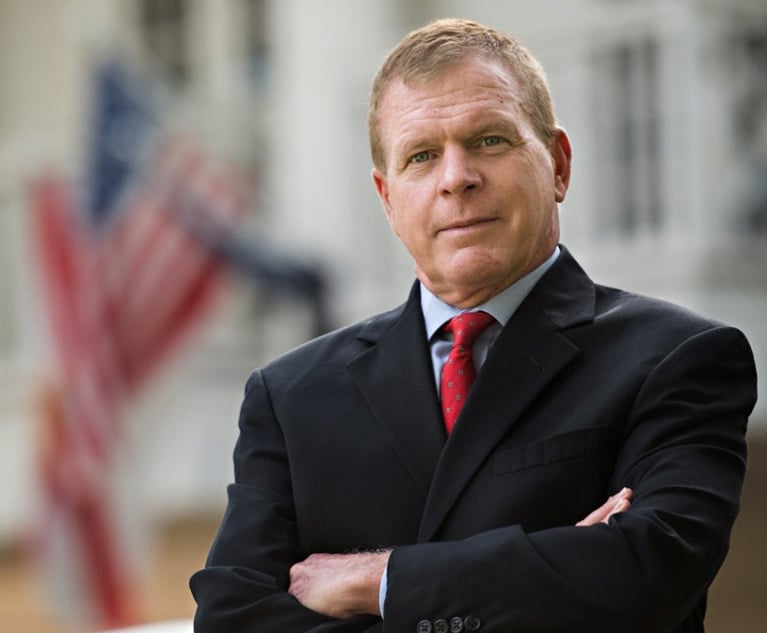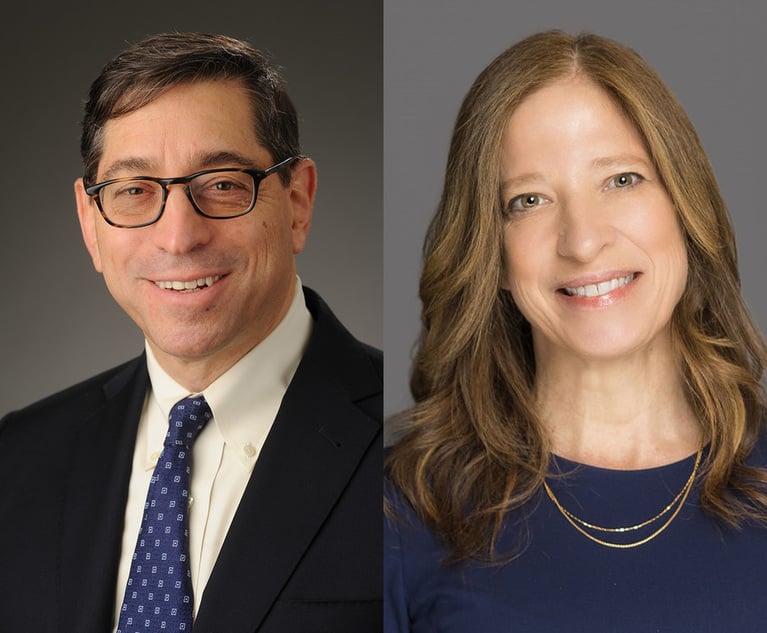Varied Perspectives, Better Solutions: The Case for Diversity in Law School Leadership
Diversity cannot be just a buzzword, nor is it captured by mere statistics. It must be in the fabric of each institution.
March 01, 2020 at 10:19 PM
5 minute read
 Villanova University Charles Widger School of Law
Villanova University Charles Widger School of Law
There is a notable lack of diversity in the legal profession. At law schools, student racial diversity is approximately 31%. Minority lawyers make up less than 17% of the profession, according to the National Association of Law Placement. Only nine percent of law partners—those at the top—are people of color. This gap should concern all of us. Across the United States, there is an increased focus on diversity in the student body of higher education institutions. I believe we can begin to make progress by taking a closer look at law school leadership.
Law schools are not just places where future attorneys learn the ins and outs of the law. They are proven training grounds for future leaders in politics, government and corporations, producing about 40% of Members of Congress, 26 of our 45 presidents, and 10% of CEOs at top companies. Diversity in law schools can help ensure diversity at the top levels of society, and diversity in law leadership will help us get there.
I am beyond fortunate. I come from a highly educated and visible African American family. My father was a student at Harvard College when Brown v. Board of Education was decided in 1954, and then went on to Yale Law School. He worked as a civil rights lawyer for President Lyndon B. Johnson, and ultimately became the first African American Secretary of the Army, in 1977. My mother received a doctorate from Howard University, and then became a professor at George Washington University. When the 1964 Civil Rights Act was signed, my father was in attendance at the White House. I have a pen from that historic event in my office.
My story is rare. I was given opportunities that many other African Americans simply did not have and still do not. My parents instilled in me the importance of education and serving others. From a young age they challenged me, as they still do today, to use my gifts to create opportunities for others. As John F. Kennedy famously said, "To whom much is given much is required." Now, more than ever, these words ring true for me.
Through higher education I found my own way to build on my ancestors' tradition of valuing education and the opportunities that come with it. I chose to pursue deanship because it is a concrete way for me to provide opportunities for students whose potential otherwise might go untapped. I am happy I found my home at Villanova University, surrounded by people who value diversity, equity and inclusion as integral components of the teaching and learning experience, as a reflection of our University's Catholic Augustinian values.
So, why is diversity important? As a lawyer, I look to case law to support my claims. In the context of diversity in education and leadership, I often point to what Supreme Court Justice Sandra Day O'Connor said in Grutter v. Bollinger, "Society as a whole benefits immeasurably from a climate in which all persons, regardless of race or gender, may have the opportunity to earn respect, responsibility, advancement and remuneration based on ability." Society as a whole benefits. We learn and grow from people who do not have the same stories and perspectives as we do.
Diversity in leadership works the same way it does in a student body. It brings varied perspectives that yield better solutions. As a law professor and dean, I can attest that my classroom and our community is more engaged, more productive and enriched when we have a range of perspectives and opinions. It keeps us away from a group-think mentality. To create diversity in leadership at law schools, we need to actively work to provide opportunities and training for diverse people not only to fill, but also to excel in leadership roles.
How can we start to change it? One tangible way is to give diverse law professors the support and exposure they need to succeed. As a professor, I was a participant at the "Promoting Diversity in Law School Leadership Workshop." Now, as dean, I am proud to partner with my colleague, Seattle U. Dean Annette Clark, to host and co-sponsor the workshop. It is designed to encourage and assist members of underrepresented groups to pursue deanships and other leadership positions. We must continue to expand work like this.
The era when my parents grew up was simpler—yet not necessarily in a positive way. Most had limited opportunities, if any. Black people couldn't go to the same schools as white people. They couldn't go to the same restaurants. Now, things are better, but I would argue that we're still not there yet.
Diversity cannot be just a buzzword; nor is it captured by mere statistics. There need to be concrete actions. It must be in the fabric of each institution. We can and must make progress on this front.
Mark C. Alexander, JD, is The Arthur J. Kania Dean and Professor of Law at the Villanova University Charles Widger School of Law.
This content has been archived. It is available through our partners, LexisNexis® and Bloomberg Law.
To view this content, please continue to their sites.
Not a Lexis Subscriber?
Subscribe Now
Not a Bloomberg Law Subscriber?
Subscribe Now
NOT FOR REPRINT
© 2025 ALM Global, LLC, All Rights Reserved. Request academic re-use from www.copyright.com. All other uses, submit a request to [email protected]. For more information visit Asset & Logo Licensing.
You Might Like
View All

Restoring Antitrust: Returning to the Consumer Welfare Standard

New York Mayor Adams Attacks Fed Prosecutor's Independence, Appeals to Trump
5 minute readTrending Stories
- 1Conversation Catalyst: Transforming Professional Advancement Through Strategic Dialogue
- 2Trump Taps McKinsey CLO Pierre Gentin for Commerce Department GC
- 3Critical Mass With Law.com's Amanda Bronstad: 700+ Residents Near Ohio Derailment File New Suit, Is the FAA to Blame For Last Month's Air Disasters?
- 4Law Journal Column on Marital Residence Sales in Pending Divorces Puts 'Misplaced' Reliance on Two Cases
- 5A Message to the Community: Meeting the Moment in 2025
Who Got The Work
J. Brugh Lower of Gibbons has entered an appearance for industrial equipment supplier Devco Corporation in a pending trademark infringement lawsuit. The suit, accusing the defendant of selling knock-off Graco products, was filed Dec. 18 in New Jersey District Court by Rivkin Radler on behalf of Graco Inc. and Graco Minnesota. The case, assigned to U.S. District Judge Zahid N. Quraishi, is 3:24-cv-11294, Graco Inc. et al v. Devco Corporation.
Who Got The Work
Rebecca Maller-Stein and Kent A. Yalowitz of Arnold & Porter Kaye Scholer have entered their appearances for Hanaco Venture Capital and its executives, Lior Prosor and David Frankel, in a pending securities lawsuit. The action, filed on Dec. 24 in New York Southern District Court by Zell, Aron & Co. on behalf of Goldeneye Advisors, accuses the defendants of negligently and fraudulently managing the plaintiff's $1 million investment. The case, assigned to U.S. District Judge Vernon S. Broderick, is 1:24-cv-09918, Goldeneye Advisors, LLC v. Hanaco Venture Capital, Ltd. et al.
Who Got The Work
Attorneys from A&O Shearman has stepped in as defense counsel for Toronto-Dominion Bank and other defendants in a pending securities class action. The suit, filed Dec. 11 in New York Southern District Court by Bleichmar Fonti & Auld, accuses the defendants of concealing the bank's 'pervasive' deficiencies in regards to its compliance with the Bank Secrecy Act and the quality of its anti-money laundering controls. The case, assigned to U.S. District Judge Arun Subramanian, is 1:24-cv-09445, Gonzalez v. The Toronto-Dominion Bank et al.
Who Got The Work
Crown Castle International, a Pennsylvania company providing shared communications infrastructure, has turned to Luke D. Wolf of Gordon Rees Scully Mansukhani to fend off a pending breach-of-contract lawsuit. The court action, filed Nov. 25 in Michigan Eastern District Court by Hooper Hathaway PC on behalf of The Town Residences LLC, accuses Crown Castle of failing to transfer approximately $30,000 in utility payments from T-Mobile in breach of a roof-top lease and assignment agreement. The case, assigned to U.S. District Judge Susan K. Declercq, is 2:24-cv-13131, The Town Residences LLC v. T-Mobile US, Inc. et al.
Who Got The Work
Wilfred P. Coronato and Daniel M. Schwartz of McCarter & English have stepped in as defense counsel to Electrolux Home Products Inc. in a pending product liability lawsuit. The court action, filed Nov. 26 in New York Eastern District Court by Poulos Lopiccolo PC and Nagel Rice LLP on behalf of David Stern, alleges that the defendant's refrigerators’ drawers and shelving repeatedly break and fall apart within months after purchase. The case, assigned to U.S. District Judge Joan M. Azrack, is 2:24-cv-08204, Stern v. Electrolux Home Products, Inc.
Featured Firms
Law Offices of Gary Martin Hays & Associates, P.C.
(470) 294-1674
Law Offices of Mark E. Salomone
(857) 444-6468
Smith & Hassler
(713) 739-1250









